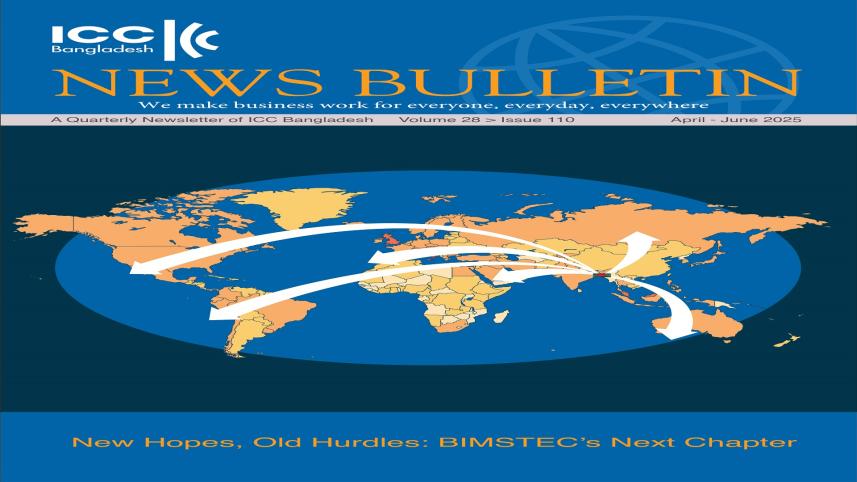BIMSTEC trade lags behind ASEAN

Bangladesh must prioritise enhancing trade among the seven member states of the Bay of Bengal Initiative for Multi-Sectoral Technical and Economic Cooperation (BIMSTEC) as the volume has remained significantly low, according to the ICCB.
Only around 7 percent of the member countries' total trade currently takes place within the group, noted the International Chamber of Commerce–Bangladesh (ICCB).
In contrast, it is approximately 25 percent among members of the Association of Southeast Asian Nations (ASEAN), said an ICCB editorial in its April-June 2025 quarterly bulletin.
The editorial was published following the 6th BIMSTEC Summit held in Bangkok on April 4.
"One of the primary reasons for this limited integration is the prolonged delay in finalising a free trade agreement (FTA), negotiations for which have been ongoing since 2004," it stated.
"Progress has been hindered by the persistence of non-tariff barriers, protection of sensitive product categories, and the reluctance of certain countries to open up their markets," it read.
The chamber highlighted that the BIMSTEC member states had recently adopted a new, comprehensive strategic document entitled "Bangkok Vision 2030", aimed at guiding regional development in a structured and cohesive manner.
The vision aligns with key global goals, including the United Nations' Sustainable Development Goals (SDGs) and Thailand's eco-conscious Bio-Circular-Green (BCG) economic model.
The ICCB also underscored the need to facilitate trade through streamlined visa processes, improved customs infrastructure, and enhanced digital payment systems.
Greater regional cooperation, it argued, would yield substantial benefits for Bangladesh.
"Bangladeshi businesses, particularly in garments, agriculture, pharmaceuticals, and light engineering, stand to benefit from reduced trade costs and expanded access to regional markets," said the article.
"Furthermore, foreign investors may find Bangladesh increasingly attractive, particularly in infrastructure, energy, and digital technology, if the region can establish transparent and stable trade rules," it said.
While the Bangkok Vision 2030 sets out to expedite the FTA process, the ICCB noted that concrete progress has remained inconsistent and slow-moving.
Industry insiders estimate that intra-regional trade among the BIMSTEC nations is currently over $40 billion.
However, the potential is believed to be far greater, with trade volumes projected to reach as much as $250 billion if barriers are removed and integration is improved.
A crucial enabler of this potential is the BIMSTEC Trade Facilitation Strategic Framework 2030, developed by Asian Development Bank (ADB), which sets forth specific initiatives to advance trade facilitation among member countries.
Bangladesh, having assumed the BIMSTEC chairmanship for the 2025-2027 term at the recent summit, is now well-positioned to lead efforts to implement this framework.
According to the ICCB, the country has a unique opportunity, as it gained chairmanship of the BIMSTEC for the next two years starting last April, to advocate for bold reforms and deeper regional cooperation.
This leadership role not only amplifies Bangladesh's voice within the BIMSTEC but also strengthens its influence in broader regional affairs.
By spearheading the implementation of the Bangkok Vision 2030, Bangladesh can contribute significantly to fostering greater regional integration for the shared prosperity of all member states, siad the editorial.



 For all latest news, follow The Daily Star's Google News channel.
For all latest news, follow The Daily Star's Google News channel.
Comments